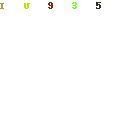The House of Representatives on Tuesday passed for second reading, a bill seeking to give leaders of federal and state legislatures immunity from prosecution.
The ‘Bill for an Act to Alter Section 308 of the Constitution of the Federal Republic of Nigeria, 1999 to Extend Immunity to Cover Presiding Officers of Legislative Institutions,’ sponsored by Mr Olusegun Odebunmi, was narrowly passed as members were divided over it.
Beneficiaries of the proposed privilege will include four presiding officers of the National Assembly and those of the state houses of assembly – two in each of the 36 states.
Before the bill was debated, the Speaker of the House, Femi Gbajabiamila, put a caveat that he was against the bill and was not willing to benefit from the privilege should it be eventually passed and assented to.
He stated that he would only support the proposal if it would take effect from 2023 after the end of the tenure of the current leadership.
The Speaker said, “Honourable Odebunmi, before you lead the debate, this bill seeks to confer immunity on presiding officers, correct? I am going to need clarifications on some things here. If this bill is for presiding officers, then, I cannot preside on this bill because there is an inherent conflict of interest. But if the bill seeks to confer immunity on subsequent presiding officers, after this Assembly, then, perhaps, I may preside.
“I will suggest that if the bill does not have a futuristic commencement date, we should put a commencement date from 2023, so that I’m not conferred with any kind of immunity. That is my suggestion. But if you insist that it is supposed to be from this point, moving forward, as soon as the bill is signed, then I will need to step down.”
Leading the debate, Odebunmi said the proposal was to protect the legislative arm of government. He also noted that Gbajabiamila was not the only presiding officer that the bill would protect.
He said, “Extending immunity to the presiding officers of the national and state assemblies is not a means of shielding them from answering any question generated by their actions, or preventing members of the House from exercising their powers of choosing or changing their leaders when required as provided for by the laws, but a genuine way of protecting the most sacred institution in a democracy.”
The lawmakers later resolved that the bill should be pushed to Nigerians, through a public hearing, to accept or reject it.”
Opposing the bill, Mr Sergius Ogun, said the proposal came at a time when many Nigerians were asking the immunity being currently enjoyed by leaders of the executive arm of government – president and governors – be removed.
Currently Section 308 of the 1999 Constitution states that the President, Vice-President, governors and deputy governors are protected from criminal or civil proceedings.
Opposing the bill Ogun said, “I do not think this is what we need today. Granted that the principal officers relate with the executive from time to time, I don’t know what they need immunity for. I don’t think it is necessary.”
Another member, Mr Solomon Bob, said the bill, if passed, would show that the lawmakers were “further indifferent” to the security challenges facing the country.
While Odebunmi rose in what appeared to be a move to withdraw the bill, some lawmakers asked that he should do so after the debate.
Mr Daniel Asuquo urged the lawmakers to support the bill “to go to the next level, so that Nigerians will be able to contribute, whether such a bill is necessary or not.”
Again, Gbajabiamila said as the lawmakers were debating the merits and demerits of the bill, “I want to repeat myself that whatever happens to this bill, it must be tweaked in a way that the present presiding officers cannot benefit from it, because it will be caught by several legal issues.
One is the doctrine of nemo judex in causa sua, which means you cannot be a judge in your own cause, and two is the potential conflict of interests.”
The Chairman of the House of Committee on Judiciary, Mr Onofiok Luke, however, noted that it was a constitution amendment bill, which would be compiled with others in the review exercise by the National Assembly.
It’s coming at wrong time – Elumelu
Opposing the bill, the Minority Leader, Ndudi Elumelu, said, “At this time in our nation, what is important is the provision of security and dividends of democracy for our people. Our people are desirous of being well taken care of. Outside here, Nigerians are being butchered, they are being killed. People can’t even feed themselves. Things are very difficult. Just yesterday, in one of the communities that make up my constituency, people were slaughtered.”
The Majority Leader, Alhassan Ado-Doguwa, who was visibly angered by the rising opposition to the bill, argued that the lawmakers should not be jittery when legislating on issues affecting them.
Ado-Doguwa, who said he agreed with some of the issues raised on “the controversial bill,” warned the lawmakers against being apprehensive when dealing with matters affecting them.
The Majority Leader stated that should Gbajabiamila step down as Speaker, the issue would also affect the Deputy Speaker, Ahmed Wase, as they would both benefit from the immunity.
He, therefore, warned that the House should avoid having to elect a speaker extempore on a matter that could have easily been passed.
Gbajabiamila put the question on second reading of the bill to voice vote and it was unanimously passed. The bill was referred to the House Committee on Constitution Review led by Wase.

